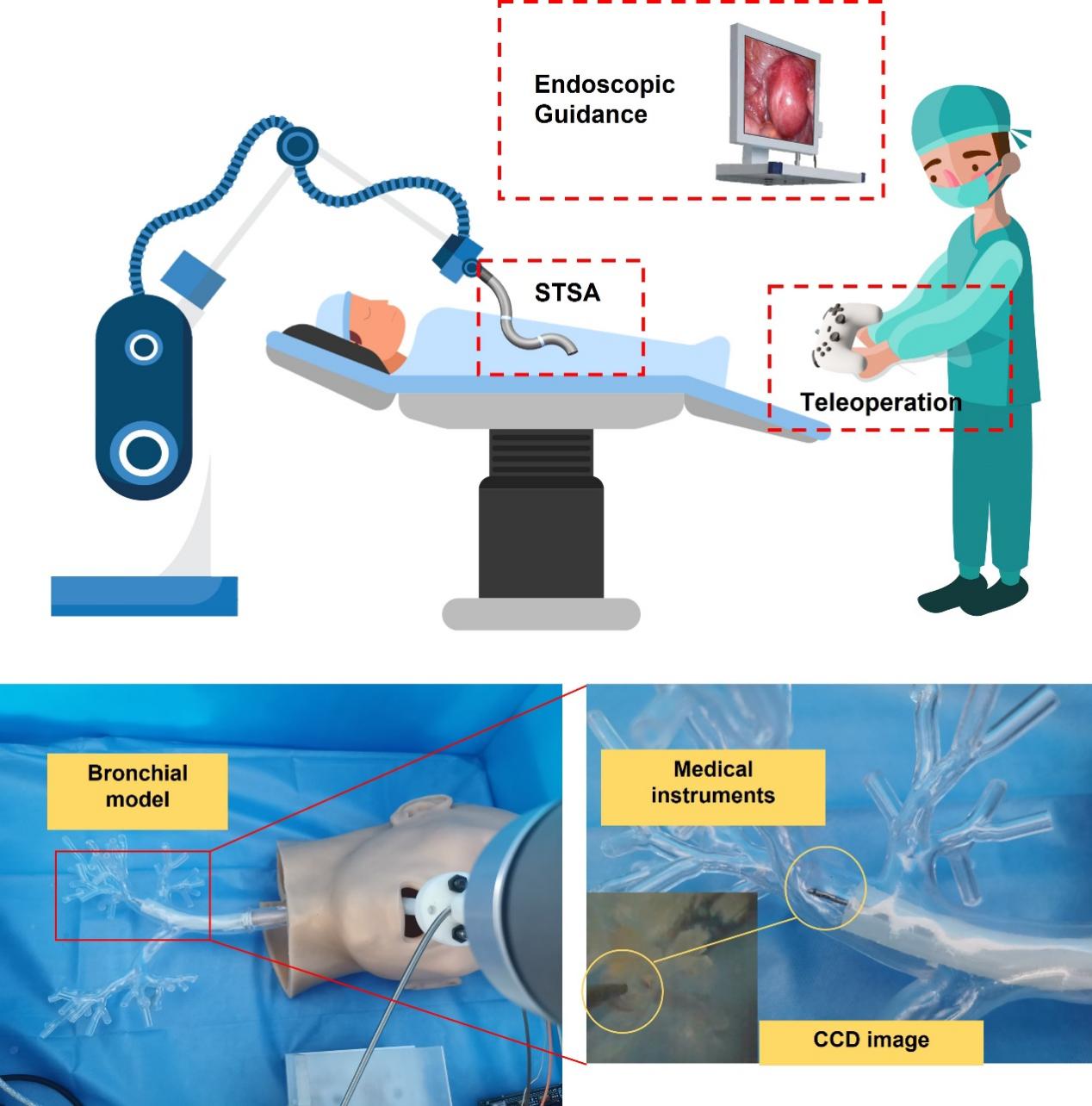Dai Shangqi, a postgraduate student from the Department of Biomedical Engineering at Tsinghua University, was awarded the Excellent Paper Award at the 19th Asian Conference on Computer-Aided Surgery (ACCAS 2023). His paper, titled Modeling of Tendon-Driven Soft Robot with Stiffness-Tunable Structure, presented a novel design for a minimally invasive surgical robot system.
The paper presents a minimally invasive diagnostic and therapeutic surgical robot system constructed using a soft actuator with stiffness-tunable structure as the front-end instrument. The actuator is designed with multiple instrument channels that can be used for intraoperative visualization, instrument delivery, and other functions. The system is validated through preliminary experiments in simulated medical scenarios such as laparoscopy and bronchoscopy. The proposed soft robot with stiffness-tunable structure enhances the adaptability of flexible instruments to complex intraoperative environments and tasks, significantly improving the potential application of soft robotics in medical scenarios, including minimally invasive surgery.

A diagram of the modeling of tendon driven soft robot with stiffness-tunable structure
Meanwhile, Han Boxuan, a doctoral student working in the same laboratory as Dai as a researcher in the team of Professor Liao Hong'en, cooperated deeply with the Peking University Health Science Center and co-published the paper Non-rigid Registration-Based Virtual Planning on Maxillofacial Surgery with Bone Lesions Across the Midline, which also won the Excellent Paper Award. Han's paper focused on patients with maxillofacial bone lesions across the midline, including trauma, tumors, and osteomyelitis, who required surgical intervention. The study established an initial virtual planning algorithm for midline bone lesions based on non-rigid registration.
These award-winning papers demonstrate the laboratory's significant contributions to the field of medical robotics and intelligent medical imaging diagnosis. They not only enhance the autonomous and precise control of medical robots but also optimize the understanding and utilization of medical image information. The laboratory's innovative research direction in the medical and health field reflects their commitment to both short-term and long-term development goals.
Liao's team has made substantial breakthroughs in various research areas, including integrated intelligent minimally invasive diagnosis and treatment, high-performance naked-eye 3D medical imaging, novel surgical robots, and intelligent control. Their focus is on surpassing the conventional concept of minimally invasive surgery and exploring emerging high-precision diagnostic and therapeutic fields. By incorporating "integrated minimally invasive diagnosis and treatment" with future medical models, the team has achieved remarkable results in multimodal imaging and precise minimally invasive surgical navigation. These achievements lay a solid foundation for the development and clinical application of future intelligent diagnostic and therapeutic devices.
ACCAS is a professional conference initiated by scientists, clinical doctors, and researchers in the field of computer-assisted surgery in Asia. Each year, it invites around 100 researchers from countries such as China, Japan, South Korea, Singapore, and Thailand. The conference serves as a platform for exchanging and discussing the latest research advancements in precision computer-assisted surgery. Over the years, the conference has witnessed a plethora of innovative breakthroughs in intelligent and precise diagnosis and treatment, showcasing the continuous advancements in this field.
Editor: Li Han

